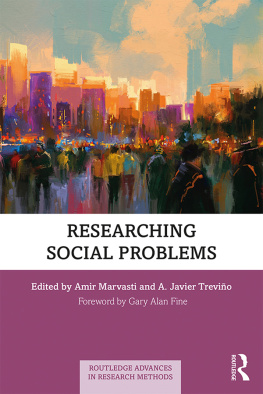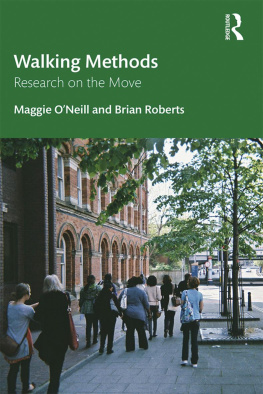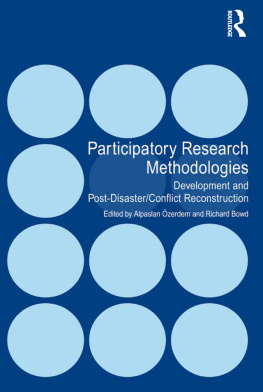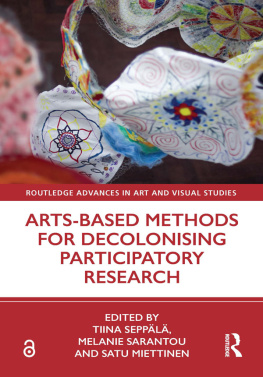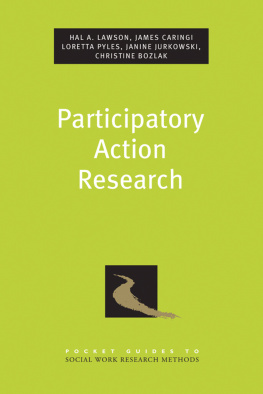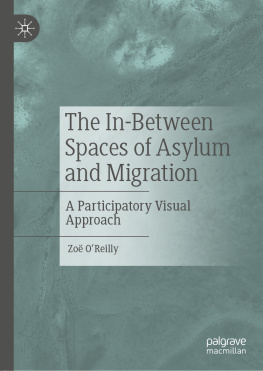SAGE Publications Ltd
1 Olivers Yard
55 City Road
London EC1Y 1SP
SAGE Publications Inc.
2455 Teller Road
Thousand Oaks, California 91320
SAGE Publications India Pvt Ltd
B 1/I 1 Mohan Cooperative Industrial Area
Mathura Road
New Delhi 110 044
SAGE Publications Asia-Pacific Pte Ltd
3 Church Street
#10-04 Samsung Hub
Singapore 049483
Dirk Schubotz 2020
First published 2020
Apart from any fair dealing for the purposes of research or private study, or criticism or review, as permitted under the Copyright, Designs and Patents Act, 1988, this publication may be reproduced, stored or transmitted in any form, or by any means, only with the prior permission in writing of the publishers, or in the case of reprographic reproduction, in accordance with the terms of licences issued by the Copyright Licensing Agency. Enquiries concerning reproduction outside those terms should be sent to the publishers.
Library of Congress Control Number: 2019937403
British Library Cataloguing in Publication data
A catalogue record for this book is available from the British Library
ISBN 978-1-4462-7336-4
ISBN 978-1-4462-7337-1 (pbk)
Editor: Alysha Owen
Assistant editor: Charlotte Bush
Production editor: Martin Fox
Copyeditor: Gemma Marren
Proofreader: Neil Dowden
Indexer: Martin Hargreaves
Marketing manager: Susheel Gokarakonda
Cover design: Bhairvi Gudka
Typeset by: C&M Digitals (P) Ltd, Chennai, India
Printed in the UK
At SAGE we take sustainability seriously. Most of our products are printed in the UK using responsibly sourced papers and boards. When we print overseas we ensure sustainable papers are used as measured by the PREPS grading system. We undertake an annual audit to monitor our sustainability.
About The Author
Dr Dirk Schubotzis a Senior Lecturer in Social Policy at Queens University Belfast and studied Social Sciences and Education in his home city Berlin, in Belfast and in Kassel. Dirk initially held a three-year research post at Ulster University and then joined Queens University Belfast in 2003. Dirk has since then been a member of ARK (www.ark.ac.uk) Northern Irelands Social Policy Research Hub.
Dirks research focuses on children and young people in relation to a broad range of issues, including attitudes to community relations and education, sexual and gender identity, sexual and mental health and wellbeing, and childrens and young peoples rights. Dirks interest in and passion for participation and participatory research methods goes back to his time as a full-time youth worker. In his academic career, Dirk has conducted a range of collaborative studies that involved children and young people as advisors and/or as co-researchers. Dirk is a member of the Centre for Childrens Rights at Queens University Belfast and the Centre for Evidence and Social Innovation (CESI) at Queens University Belfast. Outside of university he chairs Common Youth, a sexual health charity for young people in Northern Ireland.
Abbreviations
AIappreciative inquiry
AOassertive outreach
ARaction research
CAPIcomputer-assisted personal interviewing
CAQDAScomputer-assisted qualitative data analysis
CATIcomputer-assisted telephone interviewing
CBPRcommunity-based participatory research
CJScriminal justice system
CRAGchildrens research advisory group
CRYMChild and Youth Resilience Measure
CSEchild sexual exploitation
CSOCivil Society Organisation
IEinstitutional ethnography
IRBInstitutional Review Board
NABUNaturschutzbund
NCBNational Childrens Bureau
NGOnon-governmental organisation
NICCYNorthern Ireland Commissioner for Children and Young People
NSPCCNational Society for the Prevention of Cruelty to Children
ODorganisational development
PARparticipatory action research
PLAparticipatory learning and action
PORparticipatory organisational research
PPAparticipatory poverty assessment
PRAparticipatory rural appraisal
RECResearch Ethics Committee
RSPBRoyal Society for the Protection of Birds
UNCRCUnited Nations Convention for the Rights of the Child
VIPERVoice, Inclusion, Participation, Empowerment, Research
YLTYoung Life and Times
Introduction
I was approached to write this book by a representative of SAGE shortly after I had given a presentation at a conference of the European Sociological Association (ESA) on a participatory research project that I was involved in. The project was a mixed methods study led by the National Childrens Bureau (NCB) with the aim to explore to what extent children and young people in Northern Ireland were involved in school policy making on bullying in their own schools (Schubotz et al., 2006). In the presentation I had talked about working on this study with children and young people of different abilities as co-researchers, including children from special schools, and how they all had different rationales for their active participation in this project. Some wanted to use their experience to support their applications to study social sciences at university, whilst others had experienced school bullying themselves and wanted to improve the way schools dealt with this issue. I talked about the need and the challenges to accommodate different perspectives of children in that study and how we tried to find different roles for all co-researchers which suited their diverse interests and abilities. I also reported back on some of the personal outcomes for the co-researchers and the participating schools, as well as the guidance to all schools that was published by the office of the Northern Ireland Commissioner for Children and Young People (NICCY) as a result of this study, encouraging schools to involve children and young people more proactively in the running of schools, including on bullying policies.
So, when I was approached about writing this book I was both delighted and hesitant. With many years of experience in community youth work in Berlin, my home city, and now many years of experience in participatory youth research and childrens rights-based research approached in Belfast, my adopted second home, I certainly felt confident that I could make a contribution to the field of collaborative and participatory research methods. Teaching qualitative research at undergraduate and post-graduate level at university has also helped me acquire a more comprehensive understanding of various collaborative research approaches. In the role as Chair of my Schools Research Ethics Committee I have gained a good understanding of ethical challenges faced by collaborative research practice and have tried to implement and facilitate sensitive and flexible approaches required to accommodate participatory research in university settings. Nonetheless, writing a textbook like this as a single author ultimately means that I am covering areas of research in which other people have a far greater expertise than I have.


